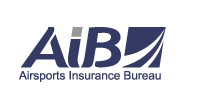Did you know that, from the 1st October 2014, the Driving Vehicle and Licensing Agency (DVLA) is no longer going to be issuing you with a paper tax disc to display on your car windscreen? It would not surprise us one little bit if your answer was a resounding: “No!”
A recent survey revealed that around 50% of motorists did not know about the forthcoming changes with almost 33% having no intention of looking into the pending alterations. Perhaps, if those that weren’t initially interested knew that they could face a fine of up to £1,000 they might start to make some enquiries!

So, we thought we would do our bit and make our readers aware about these new car tax disc rules.
The car tax disc has been around for 93 years but, in less than a month, it will no longer be issued. However, don’t think that you will no longer need to pay car tax – you most definitely will. The DVLA will have a digital record of the cars whose owners have paid their car tax and those who haven’t. It will be possible to check if you have not paid your car tax by the authorities using the likes of number plate recognition cameras.
When you receive your reminder that your car tax is due for renewal from 1st October 2014 you can either sort this out by calling into the Post Office to pay for it, phone the DVLA or apply via their website.
In the past it has only been possible to pay for 6 or 12 months tax but, if you prefer, you will now be able to pay monthly by direct debit although this will mean paying an extra 5% of the annual car tax fee. If you pay by credit card you will pay a surcharge of £2.50.
There are some changes if you are buying or selling a second hand car. The seller must notify the DVLA immediately that they have sold their car or face a hefty fine and, potentially, other charges. They will get a refund of any full months of tax that they had paid. The buyer will need to register the car and pay car tax from the outset or face a hefty fine – in the past they have not needed to pay for car tax until the existing tax disc has run out.
This new system appears to be a positive step as it is going to be less of an administrative burden both for the motorist and the DVLA and is estimated to result in administrative savings in the UK of about £10 million per annum. Also, it provides more ways of paying and it will be easier to identify those avoiding paying car taxes.
We hope that the above has been of some help.

You must be logged in to post a comment.